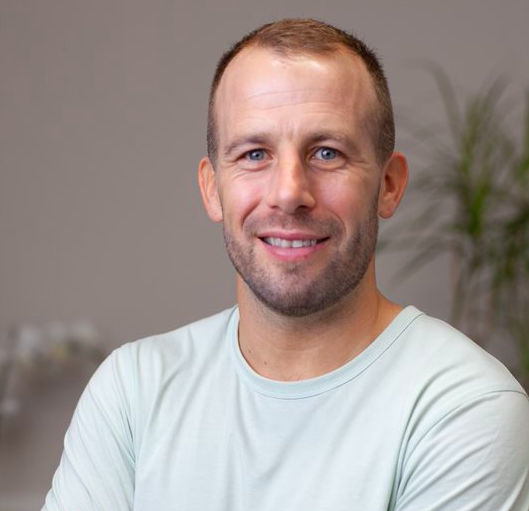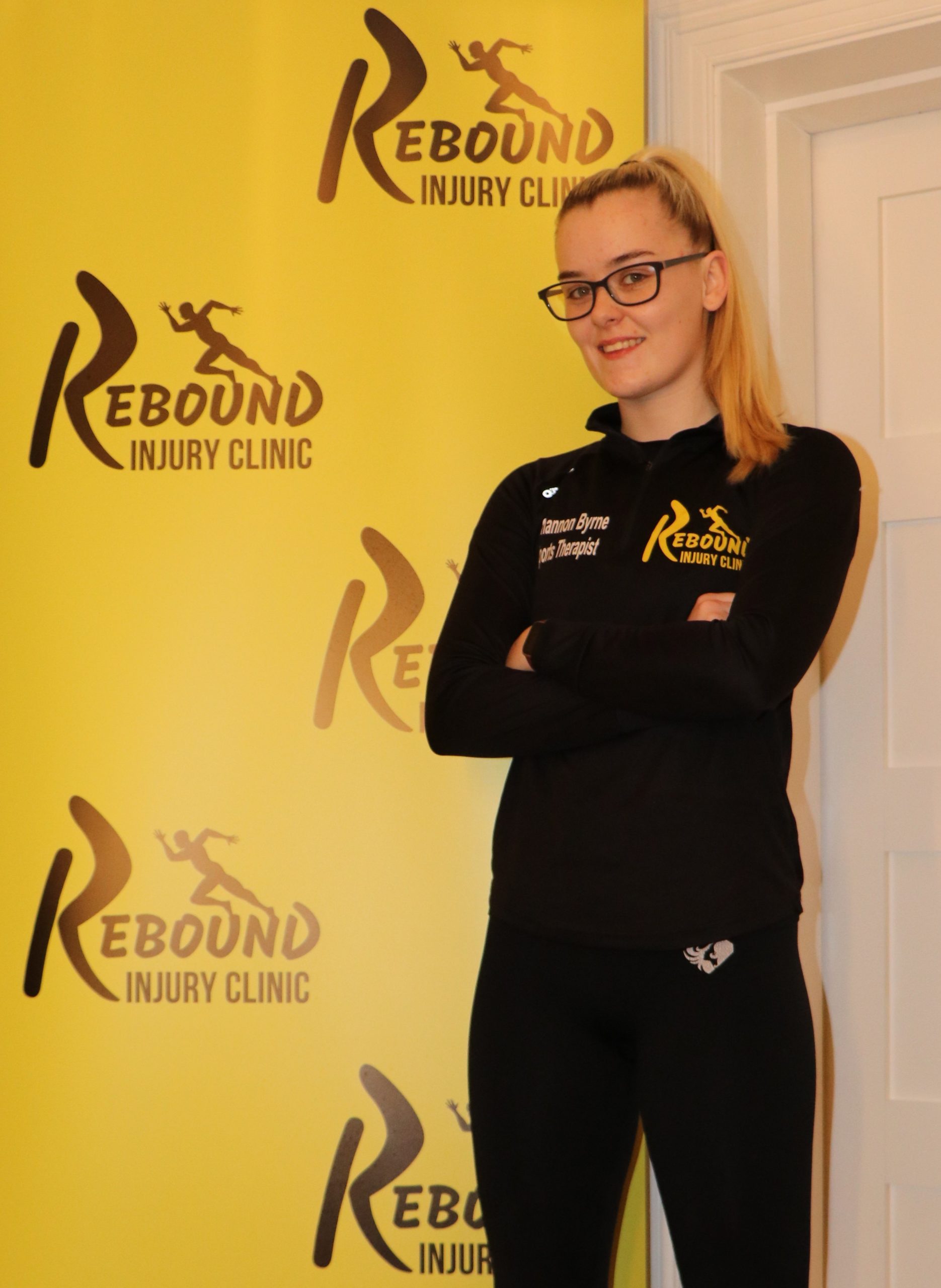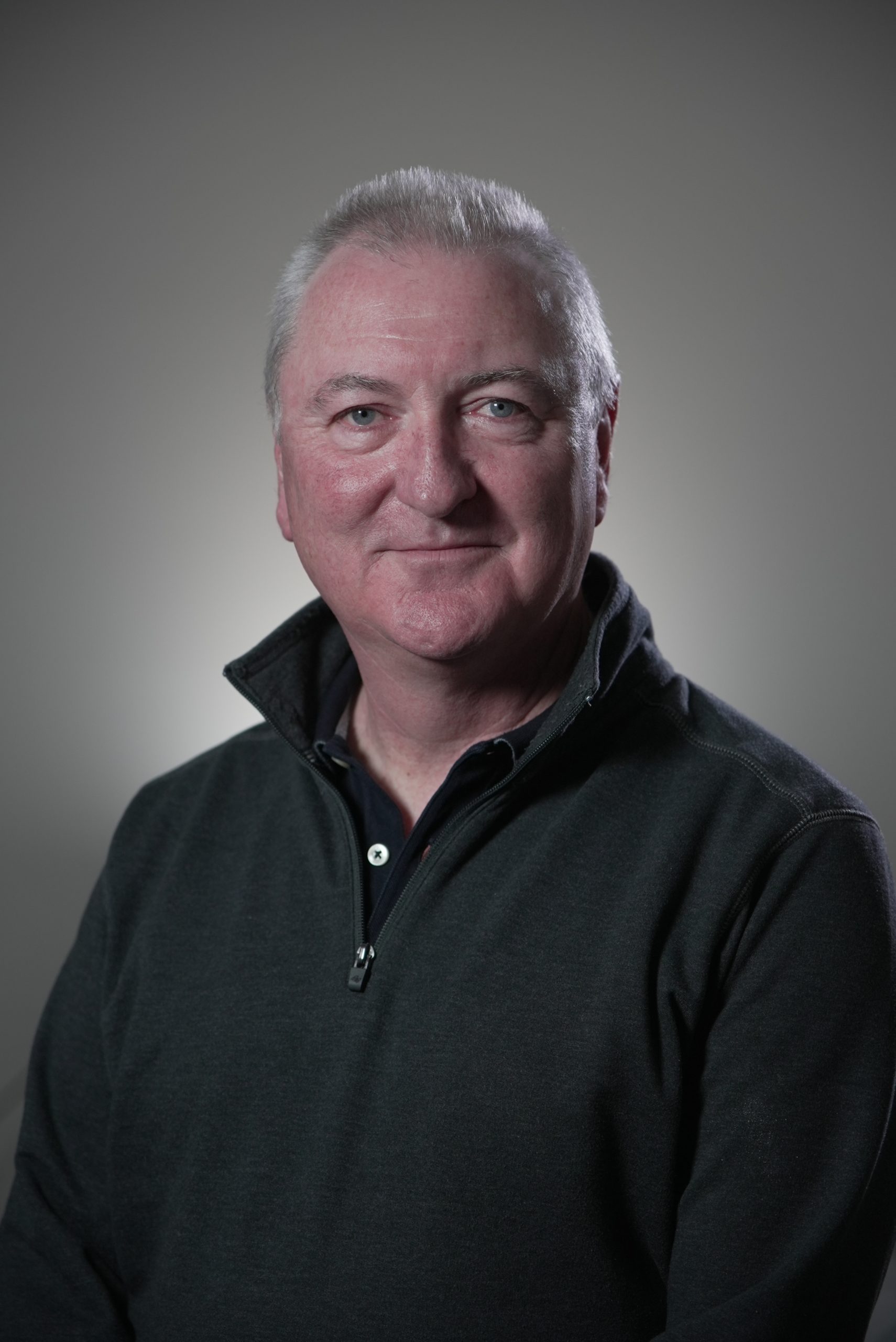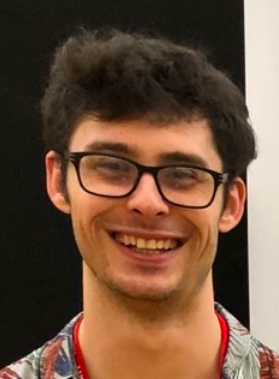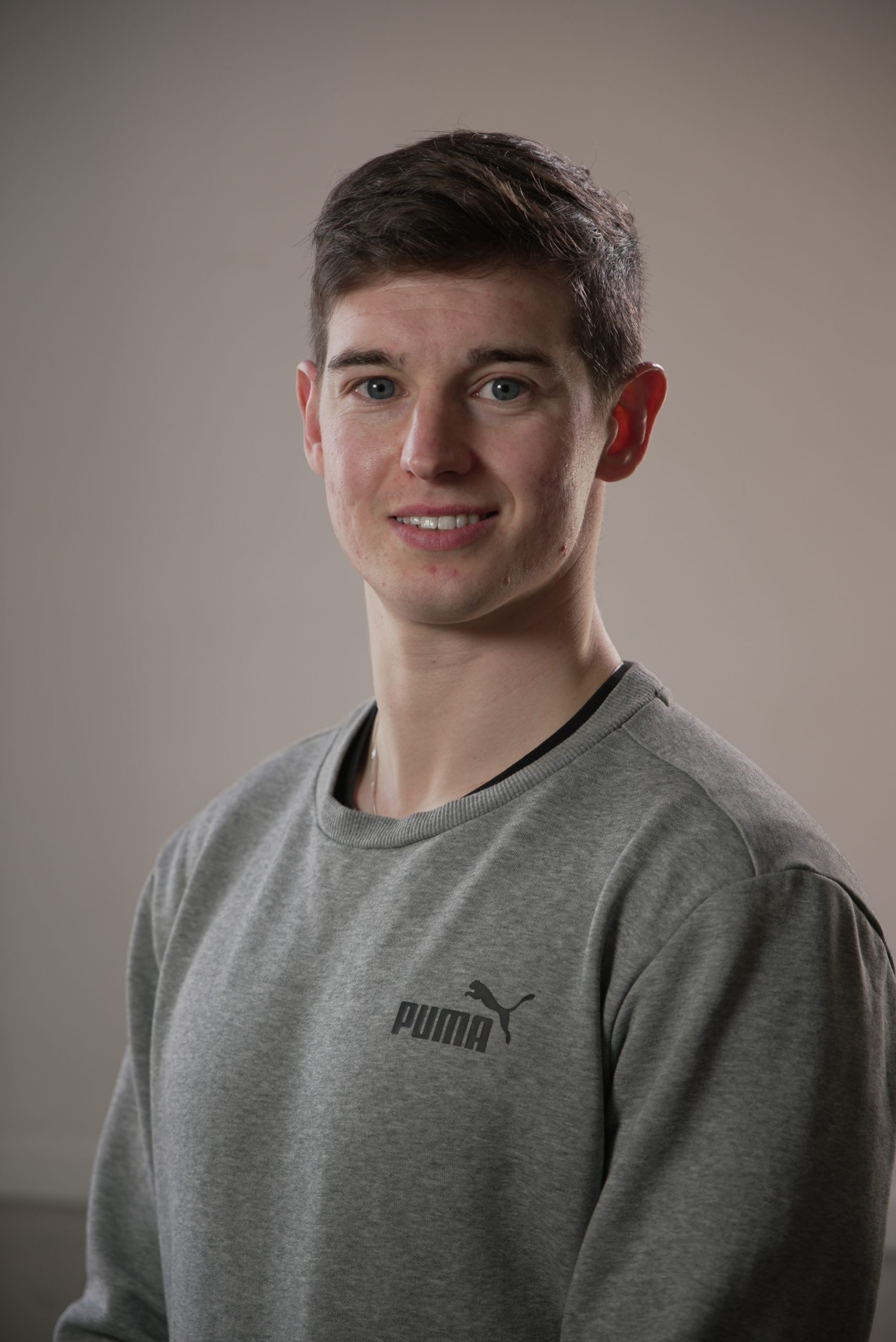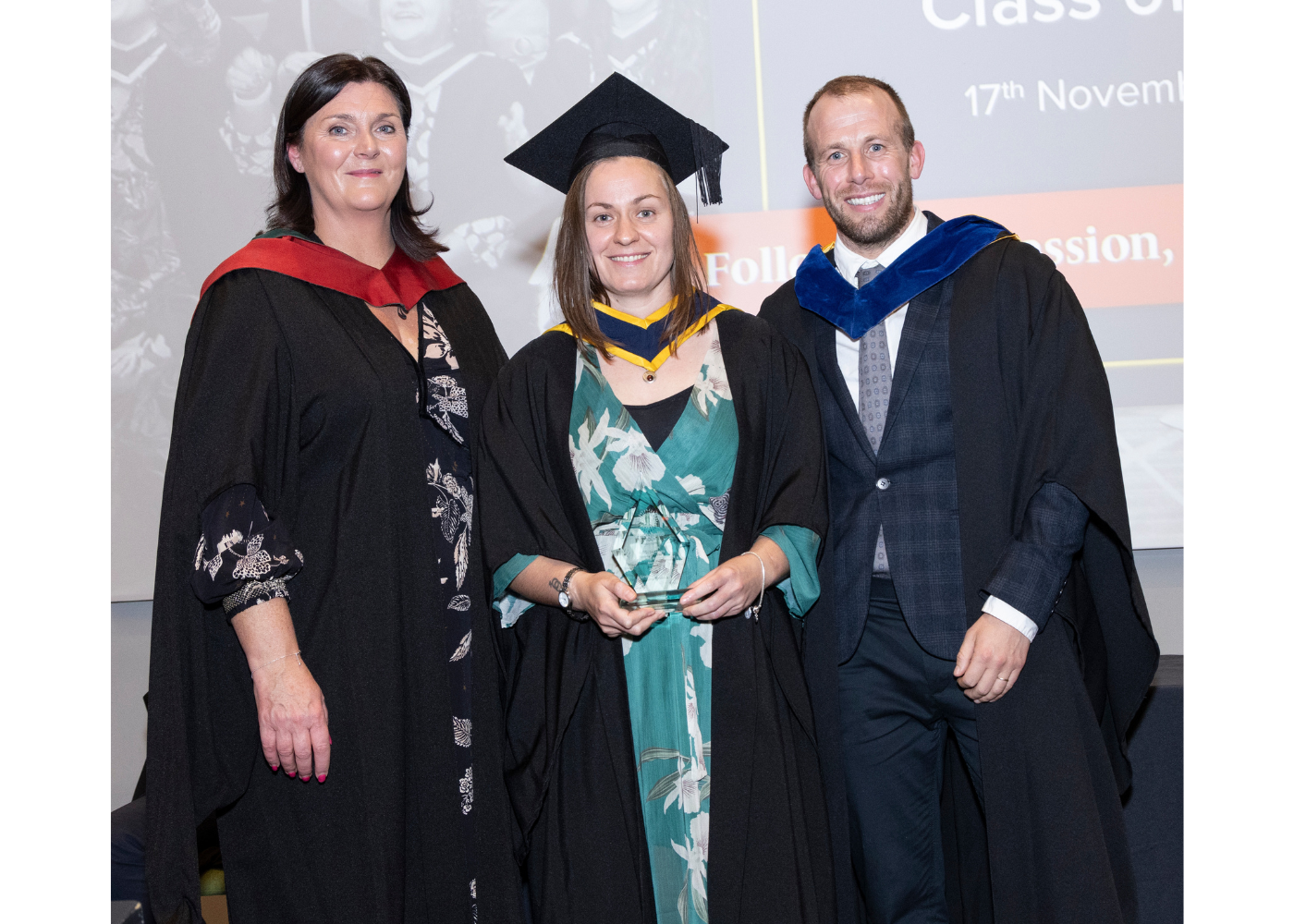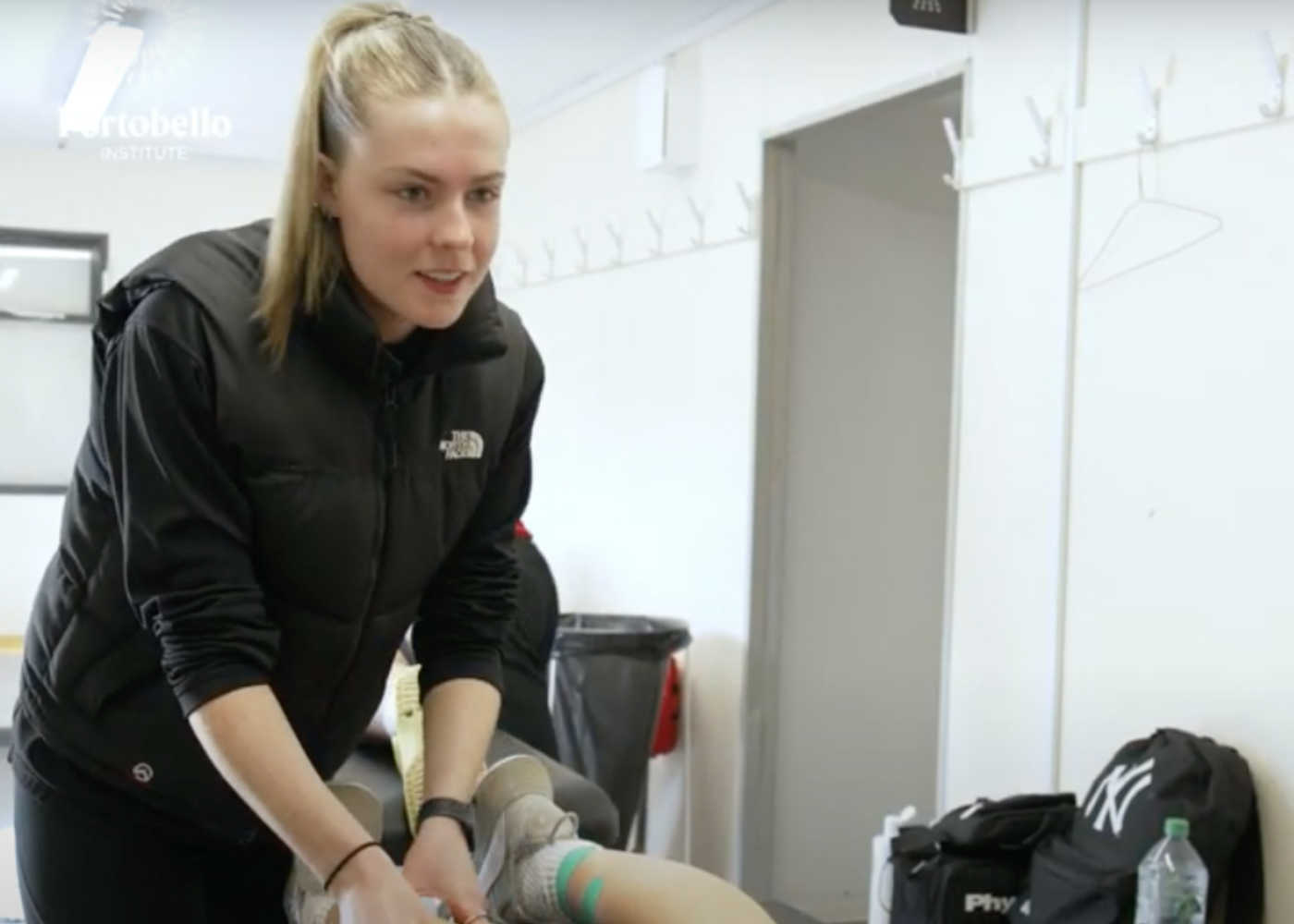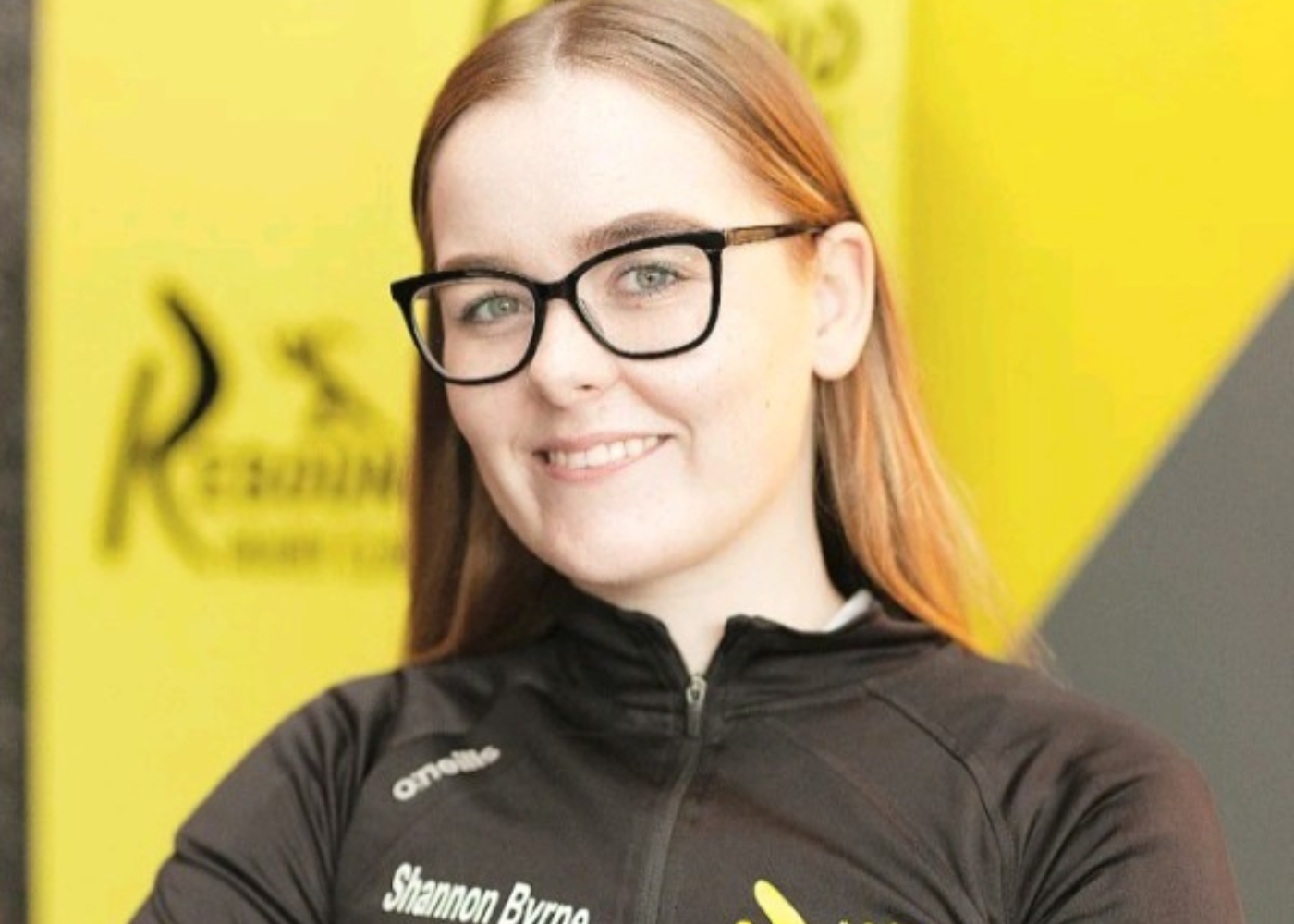Course Details
This BSc Hons in Sports Therapy course, awarded by University of Essex, gives you the opportunity to qualify and work as a professional sports therapist with the option to progress to a Masters in Physiotherapy and become a qualified physiotherapist.
Level
UndergraduateQualification
Honours Degree| Course | Delivery Mode | Start Date | Duration | |
|---|---|---|---|---|
| BSc (Hons) Sports Therapy |
In-person Weekdays
|
30th September 2024 | 3 years | |
| BSc (Hons) Sports Therapy |
Blended Learning
|
5th October 2024 | 3 years |
Overview
What will I study during this BSc (Hons) Sports Therapy course?
During this programme, you will learn to assess, treat and where appropriate refer athletes for specialist advice and intervention. You will learn to provide immediate care of injuries and basic life support in a recreational, training and competitive sporting environment. You will learn to plan and implement a unique rehabilitation programme for each athlete you treat. The practical techniques you will acquire, include sport and remedial massage for injury prevention and rehabilitation.
-
Professional Skills and Development – 30 Credits
Module Description
This module supports the content of other first year modules and prepares students for the second year. The key focus of this module is to develop students’ fundamental academic skills, including but not limited to scientific writing literature searching, the scientific paper format, research design, data collection, analysis, interpretation and presentation. This module introduces learners to the concepts that are fundamental to academic scholarship.
This module will also enhance personal development in preparation for future employment opportunities in your future career through the development of key transferable skills (e.g., communication, presentation and collaboration). Students will create a skills portfolio which evidences and reflects on key skills acquired across all modules, together with a CV, personal statement and reflective practice exercise.
This module is delivered by a mixture of teaching methods including lectures, practicals, PC labs and seminars.
Learning Outcomes
On successful completion of this module, the learner will be able to:
- Apply knowledge about major principles and concepts or research design.
- Demonstrate confidence in academic writing and referencing other people’s work in a systematic way.
- Demonstrate ability to source and interpret information and statistical data (exam)
- Demonstrate ability to communicate by structuring and presenting information effectively (presentation, portfolio)
- Reflect constructively on learning and professional experiences and examine their values and skills to enhance their professional identity.
-
Applied Biomechanics – 15 Credits
Module Description
This module explores the physical and mechanical principles that determine human movement in sports and exercise settings. Learners will learn the meaning of concepts such as force, mass, speed, velocity, acceleration, momentum and will explore how they enable us to describe and understand movement in sport and exercise. The exploration of human movement principles, load and force will provide learners with an understanding of injury mechanics and rehabilitation requirements and progression in relation to sports therapy and sports therapy modalities.
Learning Outcomes
On successful completion of this module, the learner will be able to:
- Describe how the basic principles of mechanics can be applied to describe and explain movements of the human body and injury mechanism in sport
- Describe how applications of Newton’s laws of motion can explain the causes of linear and rotational motions in sport and exercise
- Demonstrate an ability to perform simple calculations associated with analyses of movements in sport and exercise
- Describe categories of human movement and understand the anatomical basis for the production of movement
- Demonstrate basic competence in data presentation, analysis and interpretation, numeracy, information retrieval and written communication.
-
Introduction to Sport Therapy – 30 credits
Module Description
This module introduces learners to sports therapy, placing it within the context of healthcare in Ireland and the UK and within other health care delivery systems. The module provides the learners with the necessary underpinning knowledge and fundamental skills to become a sports therapist. Assessments focus on the learners being able to demonstrate the required knowledge base to become a sports therapist. Learners complete First Aid training and certification as part of this module. Certification in first aid is completed through Avalon First Aid training and complies with The Safety, Health and Welfare at Work Act 2005. Course and Assessment must be completed every 2 years as per industry best practice.
Learning Outcomes
On successful completion of this module, the learner will be able to:
- Describe the development of sports therapy and its place in the delivery of healthcare
- Explore the concept of professionalism and reflective practice within sports therapy
- Use appropriate communication skills to undertake a subjective assessment and record it appropriately
- Select and demonstrate a range of massage techniques
- Describe the theory and implementation of thermal modalities in sports therapy
- Deliver first aid in a sporting environment having obtained a recognised first aid qualification
-
Sport and Exercise Psychology – 15 Credits
Module Description
This module explores the key theories in sport psychology, covering a wide range of sport psychology topics and the mental skills used within those topics. Psychological issues relating to individual behaviour patterns will be studied in detail. The impact of psychological factors on sports participation and performance will be explored with particular emphasis on consider the impact of injury and rehabilitation on psychological wellbeing of the athlete. The concepts of motivation, behaviour change, goal setting and identity.
Learning Outcomes
On successful completion of this module, the student will be able to:
- Demonstrate a basic knowledge and understanding of the main branches of psychology and their application to sports therapy
- Describe how psychology may be used to improve sports performance
- Describe how sports psychology concepts can be used to improve sports therapy and rehabilitation processes
- Formulate and present ideas and arguments, using scientific evidence including findings from academic resources for example books and journal papers to support claims
- Use the key skills of retrieval of information, communication identifying and solving problems
-
Applied Anatomy and Pathophysiology for Sports Therapy – 30 Credits
Module Description
This module introduces learners to the anatomy and physiology of the human body with direct reference to sports therapy. The module will cover appendicular and axial anatomy, cardio-vascular-pulmonary anatomy and physiology, integumentary, peripheral, and central nervous system anatomy, and physiology. Common pathophysiological sporting disorders associated with the systems will be considered.
Aims
The module aims to provide the learners with an understanding of the basic human anatomy and physiology. The learners will learn the coupling of structure with function through a series of lectures, tutorials, and practicals.
Problem based learning will allow learners to explore the presentations of common sports injuries that can affect the body systems covered.
Learning OutcomesOn successful completion of this module, the learner will be able to:
- Describe the processes associated with inflammation, healing, and repair of body tissues
- Demonstrate anatomical knowledge of the human body, with particular focus on the musculoskeletal, nervous, endocrine, cardiovascular, and respiratory systems
- Demonstrate understanding of systems physiology with particular focus on muscular, nervous, endocrine, cardiovascular, respiratory, and gastrointestinal systems
- Relate knowledge of anatomy and physiology to exercise and fitness
- Describe and palpate anatomical structures associated with common sports injuries
-
Research Methods 2 (20 Credits)
Module Aim
The aim of this module is to introduce the fundamental concepts of research
methods, along with covering the basic application and interpretation of various data
analysis techniques.Learning Outcomes
After completing the module the student should be able to:
1 Describe and identify various aspects of the different types of research design
2 Apply, interpret and report a variety of analysis techniques. -
Exercise Physiology – 15 Credits
Module Description
In this module we will focus on the acute and chronic adaptations to exercise and training of the cardiovascular, pulmonary and muscular systems and consider how each system contributes to limitations of human performance. We will explore how the nervous and endocrine systems integrate the response to exercise and training. We will also explore differences in response and adaptation between adult and paediatric participants in exercise.
Learning Outcomes
On successful completion of this module, the learner will be able to:
- Describe the structure and function of the cardiovascular, pulmonary, muscular and endocrine systems
- Discuss the responses of the cardiovascular, pulmonary and muscular systems to an acute exercise bout
- Evaluate the roles of the cardiovascular, pulmonary and muscular systems in the limitation of human exercise performance
- Discuss the responses of the cardiovascular, pulmonary and muscular systems to an exercise training programme
- Explain how the nervous and endocrine systems co-ordinate the acute and chronic responses to exercise
- Show competence in collection, collation and analysis of data from various physiological practicals.
-
Assessment and Evaluation of Sport and Exercise Injuries – 30 Credits
Module Description
Building on Introduction to Sports Therapy, this module develops learners’ skills in assessment, evaluation and diagnosis of sports and exercise injuries.
The module will consist of taught sessions to introduce key concepts of examination, assessment and diagnosis of sports and exercise injuries. It will develop the skills of clinical examination and assessment of peripheral and spinal regions. Problem based learning will allow learners to explore the presentations and treatment of common sports related injuries acknowledging the process and timings of healing and repair.Learning Outcomes
On successful completion of this module, the learner will be able to:
- Plan and carry out a relevant and justified subjective and objective assessment of a patient / client with a given sport and exercise related injury and subjective presentation.
- Make a reasoned clinical diagnosis based on subjective and objective findings while considering differential diagnoses
- Discuss the role of the Sports Therapist in the assessment and management of sport and exercise related injury as part of a multi-disciplinary team
- Clinically assess and evaluate function of peripheral joints, muscles, ligaments and tendons.
- Clinically assess and evaluate function of spinal movements and joints, muscles, ligaments and tendons
-
Injury Management and Rehabilitation – 30 Credits
Module Description
This module focuses on functional rehabilitation within the practice of sports therapy. Learners will gain the underpinning knowledge and practical ability to screen for injuries, interpret the findings and implement a pre-habilitation programme to help reduce the risk of injury. Learners will be able to plan, implement and deliver rehabilitation and remedial programmes suitable for the early, intermediate, late and pre-discharge stages of any common sports injury.
Learners will develop their abilities to prescribe and deliver progressive exercise programmes. They will be able to make reasoned decisions in the selection of exercise focused on: flexibility, endurance, strength, power / speed, skill and co-ordination. Return to sport, warm-up and cool down will be explored. Within this module learners will explore the participation of specific populations in exercise and sport, including: the elderly, children and those with disabilities.
Learning Outcomes
On successful completion of this module, the learner will be able to:
- Demonstrate, justify and critique the use of exercise for injury prevention, progressive return to function, rehabilitation and performance enhancement.
- Design, implement and evaluate appropriate individual and group rehabilitation programmes for a given patient(s) / client(s).
- Outline the key components of fitness / functional capacity and discuss how these may be improved with exercise.
- Prescribe, evaluate and analyse exercise performance to provide effective feedback to the performer.
-
Treatment of Sport and Exercise Injuries – 30 Credits
Module Description
This module develops the learners’ knowledge, understanding and skills in treatments available to sports therapists in their practice. Maitland’s and Mulligan’s philosophies of manual therapy will be explored. Therapeutic modalities will include soft tissue techniques and other manual techniques, including spinal and peripheral joint mobilisations. The use of taping will also be considered. Learners will learn to undertake a reasoned approach in their practice of sport and exercise injuries closely based on typical healing times and recovery.
Learning Outcomes
On successful completion of this module, the [learner] will be able to:
- Select and demonstrate the application of a range of therapeutic techniques. Discuss the physiological and biomechanical effects of manual therapy on the musculoskeletal system.
- nterpret findings to formulate and develop a manual therapy treatment plan Provide a clinically reasoned argument for the selection of a range of therapeutic techniques
- Demonstrate ability to administer peripheral joint mobilisations and an awareness of precautions and contraindications when administering peripheral joint mobilisations.
- Demonstrate ability to administer spinal joint mobilisations and an awareness of precautions and contraindications when administering spinal joint mobilisations.
-
Research Project – 30 Credits
Module Description
This module offers learners the opportunity to undertake an in- depth piece of work focused on a Sports Therapy topic of their choice. The Research Project may take various forms of empirical research, employing different kinds of methods and methodologies such as surveys, interviewing or processing secondary data. The project provides an opportunity to apply the research methods covered during their course.
Learning Outcomes
On successful completion of this module, the learner will be able to:
- Formulate a problem relevant to Sports Therapy.
- Review relevant literature (this may be theory, research studies, official statistics, policy documents etc.)
- Follow through an investigation which will involve designing a piece of empirical research (considering the key methodological issues, risks and ethical issues)
- Incorporate relevant knowledge and skills from other parts of their degree including theoretical, methodological, analytical or substantive elements
- Using available evidence, develop an argument, and write up their material in a coherent and well-presented dissertation and produce a conference quality poster.
-
Electrotherapy Modalities – 15 Credits
Module Description
Building on Sports Therapy modules in years 1 & 2 this module introduces learners to advanced therapeutic modalities including electrical (neuromuscular electrical stimulation, transcutaneous electrical stimulation, interferential), mechanical (ultrasound), electromagnetic (laser). The focus is on learners developing their use of clinical reasoning to ensure they can justify their approach to treatment using the appropriate evidence base.
Learning Outcomes
On successful completion of this module, the learner will be able to:
- Understand and critically analyse the main philosophies of practice in electrotherapy modalities
- Understand the principles and practice of maintaining electrical safety in relation to the usage of electro-medical apparatus.
- Apply the mediums of ultrasound, interferential, and transcutaneous electrical nerve stimulation therapies safely and effectively to traumatised tissues.
-
Strength & Conditioning – 15 Credits
Module Description
Building on Sports Therapy modules in years 1 & 2 this module introduces learners to advanced therapeutic modalities including electrical (neuromuscular electrical stimulation, transcutaneous electrical stimulation, interferential), mechanical (ultrasound), electromagnetic (laser). The focus is on learners developing their use of clinical reasoning to ensure they can justify their approach to treatment using the appropriate evidence base.
Learning Outcomes
On successful completion of this module, the learner will be able to:
- Understand and critically analyse the main philosophies of practice in electrotherapy modalities
- Understand the principles and practice of maintaining electrical safety in relation to the usage of electro-medical apparatus.
- Apply the mediums of ultrasound, interferential, and transcutaneous electrical nerve stimulation therapies safely and effectively to traumatised tissues.
-
Academic and Practical Sports Therapy – 15 Credits
Module Description
This module is delivered in the final year of the BSc (Hons) Sports Therapy degree alongside.
A case-based approach to assessment and management of sports injuries will be used to explore the evidence behind both assessment and management strategies currently employed. This module will explore the evidence base for the management of sports injuries using a regional, case-based approach. Learners will have opportunities to further refine their clinical skills. They will build on their initial learning in relation to first aid and consider more advanced emergency and trauma management.Learning Outcomes
On successful completion of this module, the learner will be able to:
- Justify and demonstrate critical understanding of appropriate assessments for a range of sports specific injuries with a thorough understanding of the best current literature;
- Plan, carry out and evaluate critically sports specific pre- screening assessment;
- Plan sports specific pre-habilitation strategies with critical evaluation of published material;
- Justify critically and outline specific rehabilitation programmes for a range of sports injuries;
- Justify and demonstrate critical understanding of appropriate interventions for a range of sports specific injuries with a thorough understanding of the best current literature.
-
Sports Therapy Placement – 30 Credits
Module Description
Learners will undertake 200 hours of supervised clinical placement in a sport and/or exercise related environment. At least 50 of these hours will take place in the Learner Sports clinic. 10% of placement hours can be acquired during first and second years following successful completion of the modules. Learners will be supported in obtaining and undertaking further supervised placement activities outside of the Institute. Portobello Institute understand the importance of securing placements for learners so that they can compound their academic learning with hands on practical experiences. Portobello Institute have an arrangement with several organisations that accommodate our learners during their placement. Theses placements are assigned to learners based on their geographical home address and individual needs. Programme managers will support them through this aspect of learning and assessment. Placement Supervisors are nominated by each placement and mentor the learners whilst on placement. They also complete a report on the placement and return to the Programme manager on completion of the placement.
On completion of this module learners will be able to demonstrate achievement of the Society of Sports Therapists Standards of Proficiency drawing on their learning from the experience undertaking this module and other modules within the course.
Learning Outcomes
On successful completion of this module, the learner will be able to:
- Demonstrate the standards of proficiency expected of a sports therapist.
- Demonstrate the skills required of a sports therapist in practice
- Use evidence critically to ask and answer appropriate clinical questions to improve their sports therapy practice
- Evidence plans for their future continuing professional development by reflecting critically upon their current, knowledge, understanding and practice
- Have undertaken at least 200 hours of supervised practice
-
Advanced Sports Trauma Management – 15 Credits
Module Description
Building on Sports Therapy modules in years 1 & 2, this module will explore and expand on basic First Aid scenarios for both pitch/courtside and treatment rooms with an emphasis on the management of traumatic sports injuries and Emergency Action Plan for Sports Therapist.
Practical scenarios include, but not limiting to the conscious but unresponsive, unconscious both breathing and non-breathing, spinal injury, AED, recovery positions, choking and varying types of bleeding.Learning Outcomes
On successful completion of this module, the learner will be able to:
- Complete structured, logical assessment and treatment skills essential to the management of traumatic sports injuries.
- Critically reflect on incident/s that required Sports Trauma intervention.
- Effectively conduct primary and secondary surveys; Competently manage spinal immobilization, spinal injury, suction devices
- Competently deal with a range of Sports Trauma scenarios.
Who will I learn from?
Programme Manager
Personal Academic Tutor
Each student is assigned a personal academic tutor to support you throughout your learning journey. They are available to offer you telephone and email support at any time. You can arrange to meet them for further one to one guidance at a time convenient to you.
Many of our past graduates have found it is the opportunity to ask a simple question, seek direction and submit a draft of their assessment that supported them most to successful completion. Emailing your tutor at any stage during your programme to ask a query or submit a draft of your assessment supports you to achieve your personal best throughout your studies with Portobello.
This level of one to one support is a particular benefit to choosing Portobello as your Institute of choice to complete your studies.
Programme Manager
Personal Academic Tutor
Each student is assigned a personal academic tutor who is available to offer phone and email support at any time. You can arrange to meet them for further one-to-one guidance at a time convenient to you.
Many of our past graduates have found it is the opportunity to ask a simple question, seek direction and submit a draft of their assessment that supported them most to successful completion. Emailing your tutor at any stage during your programme to ask a query or submit a draft of your assessment supports you in achieving your personal best throughout your studies with Portobello.
How will I learn?
In-person weekday delivery offers you the opportunity to study with a more traditional schedule with lectures delivered on-site in Portobello during weekdays. Typically, those lectures are generally scheduled over 2 – 2 ½ days between Tuesday and Thursday.
Blended Learning is essentially the same, with a blend of online and on-site lectures taking place at the weekends. This makes it easier for you to study while working full-time. It also makes studying for a degree more accessible if you live outside of Dublin.
With both delivery modes, there will be lectures you need to attend on-site due to the nature of the content – practical skills etc. All online only lectures are recorded for you to catch up later. Where lectures are delivered onsite – these will simultaneously be delivered online and will also be recorded so you can customise your learning journey – attend on-site, online, or catch-up later.
Delivery Mode
You have the option to study this programme in-person on weekdays. This means 12- 16 hours of lectures per week. Portobello ensures scheduling of course timetables is considerate of students travel and accommodation arrangements, part-time working and study-life balance. The course timetable is condensed to be delivered with onsite classes 2-3 days per week over 2 semesters. Examinations are held at the end of each semester.
Practical classes are delivered in a fully equipped therapy training room with theory classes taking place in one of the many theory rooms within Portobello Institute. There is also a gym with strength and conditioning equipment available for use as part of your course.
Online Learning Portal – ePortobello
During the induction seminar, we will show you how to navigate and find what you need with all of the information you need to complete this programme uploaded onto ePortobello. The content of this programme is set out in an easy-to-follow format with a combination of notes, articles, podcasts and other materials that will help you understand the subject and complete your assessments.
Course Structure
This course is delivered over three years. During your first year you will complete four year long core modules which will introduce you to the programme of study and provide you with essential skills that will aid your study for the course of your degree.
In year two, you will complete five modules, two year-long core modules which run for both semesters, alongside two additional modules each semester. You will have a choice of certain modules to study which will be specific to your area of interest.
In year three, you will complete five modules, three core year-long modules that run for both semesters, as well as an additional module each semester. The core modules include your final year dissertation project in the area of Sports Science and Therapy and your work placement. You will have the option to choose a module related to your area of interest to complete in the first semester.
Course schedule - September 2024
Semester 1 will run from the 30/09/24 – 24/05/25.
Classes are generally delivered 2-3 days per week and are scheduled mid-week where possible.
The second and third academic years of this course will run on a similar schedule in 2025 and 2026.
Real Life Learning Opportunities
Student Sports Clinic
The Student Sports Clinic has been an invaluable part of our BSc (Hons) Sports Therapy degree training. As a Portobello Institute sports therapy student, you are insured to practice under the Society of Sports Therapists. Our Student Clinic runs on a Thursday evening in the college. As a therapist, practitioner skills are typically not learned from books or lectures but from years of hands-on work. You gain early client-contact hours in our Sports Therapy clinic where you will be tasked with setting up the clinic, completing client consultations, providing sports therapy treatments and providing rehabilitation or follow-up as required. In doing so, you learn essential clinical skills and work autonomously (with guidance and support from our Clinic Supervisor).
Work Placement
During your final year, you will complete a module incorporating work experience. For this, you will choose an individual work placement in the field of sports therapy to complete alongside your studies. If you are interested in progressing to physiotherapy, Portobello will support you in obtaining a placement with a physiotherapist – graduates have found this first-hand experience and insight into physiotherapy gave them an advantage when preparing for an interview and subsequent successful entry to Masters programmes in the area of physiotherapy.
How will I be assessed?
SMART assessments –we use a range of assessments for each module designed to support a broad range of learning styles, allowing you to excel.
The primary aim of the varying assessment styles is to support you in demonstrating your knowledge of theory and practice as a result of a range of assessments.
The final year project provides the opportunity for an extended piece of formal scientific writing preparing you for your future career and the need to keep scientific-based patient notes.
All of these assessment methods are seeking to support you to combine theory with scenario-based learning and how to practically implement these methods into your everyday practice.
Delivery Mode
Blended learning takes the schedule of a traditional face-to-face learning programme and restructures it to reduce the contact tuition time by introducing more online learning together with one-to-one tutor support.
This mode of delivery includes contact tuition and web-based e-learning sessions. The e-learning platform is interactive including recorded sessions, webinars with weekly content and assigned tasks to themes and topics. This mode of delivery will usually include a minimum of 1-weekend seminar per month attendance required. This type of delivery is generally applied to courses with a practical skills element such as this BSc (Hons) Sports Therapy and allows you to work full-time and balance the requirements of a degree programme with home and work.
Practical classes are delivered in a fully equipped therapy training room with theory classes taking place in one of the many theory rooms within Portobello Institute. There is also a fully equipped gym with strength and conditioning equipment available for use as part of your course.
Tutor Support
You can email your tutor at any stage during the module to ask a simple query and there will be scheduled opportunities to submit a draft of your assignment. Our programme management team are always available to meet you or offer you telephone and email support. For more information about our team, click here. Many of our past graduates have found it is the opportunity to ask a simple question, seek direction and submit a draft of their assessment that supported them most to successful completion.
This level of one-to-one support is unique and is a particular benefit to choosing Portobello Institute. We have invested in a team of programme managers and tutors who are experienced sports therapists and clinicians as well as knowledgeable educators. They are available to assist you at every stage of this programme and support you to achieve your personal best.
Online Learning Portal – ePortobello
During the induction seminar, we will show you how to navigate and find what you need with all of the information you need to complete this programme uploaded on to ePortobello. The content of this programme is set out in an easy to follow format with a combination of notes, articles, podcasts and other materials that will help you to understand the subject and complete your assessments.
Course Structure
This course is delivered over three academic years. There are supported seminars held at weekends with a blended learning schedule available here.
In first year, you will complete four-year-long core modules which will introduce you to the programme of study and provide you with essential skills that will aid your study for the course of your degree.
In second year, you will complete a total of five modules, two year long core modules which run for the duration of both semesters, alongside two additional modules each semester. You will have a choice of certain modules to study which will be specific to your area of interest.
In third year, you will complete five modules, three core year long modules that run for the duration of both semesters, as well as an additional module each semester. The core modules include your final year dissertation project in the area of Sports Science and Therapy and your work placement. You will have the option to choose a module related to your area of interest to complete in first semester.
Course Schedule - October 2024
Semester 1 will run from the 05/10/24 – 24/05/25.
A FLEXIBLE LEARNING JOURNEY
Classes are delivered on scheduled Saturdays or Sundays. Theory classes are delivered simultaneously onsite and online by webinar whilst practical classes are delivered on-site. There will be online activities to be completed and these can be done at your own time.
Webinars are recorded so you may catch up later if you are unable to attend offering you further flexibility during your learning journey.
Real Life Learning Opportunities
Student Sports Clinic
The Student Sports Clinic has been an invaluable part of our BSc (Hons) Sports Therapy degree training. As a Portobello Institute Sports Therapy student, you are insured to practice under the Society of Sports Therapists. Our Student Clinic runs on a Thursday evening in the College. As a therapist, practitioner skills are typically not learned from books or lectures but from years of hands-on work. You gain early client-contact hours in our Sports Therapy clinic where you will be tasked with setting up the clinic, completing client consultations, providing sports therapy treatments and providing rehabilitation or follow-up as required. In doing so, you learn essential clinical skills and work autonomously (with guidance and support from our Clinic Supervisor).
Work Placement
During your final year, you will complete a module incorporating work experience. For this, you will choose an individual work placement in the field of sports therapy to complete alongside your studies. This allows you to put into practice the skills you have learnt in class. If you are interested in progressing to physiotherapy, Portobello will support you to obtain placement with a physiotherapist – graduates have found this first-hand experience and insight into physiotherapy gave them advantage when preparing for interview and subsequent successful entry to Masters programmes in the area of physiotherapy.
How will I be assessed?
SMART assessments – we use a range of assessments for each module designed to support a broad range of learning styles, giving you the opportunity to excel.
The primary aim of the varying assessment styles is to support you to demonstrate your knowledge of theory and practical as a result of a range of assessments.
The final year project provides the opportunity for an extended piece of formal scientific writing preparing you for your future career and the need to keep scientific based patient notes. We encourage you to reflect on your knowledge gain with a number of assignments designed to explore your learning journey.
All of these assessment methods are seeking to support you to combine theory with scenario-based learning and how to practically implement these methods into your everyday practice.
Career prospects
Work as a sports therapist
Currently, many of our sports therapy graduates work in private clinics or with sports clubs/teams either individually or as part of a multi-disciplinary medical team. Private sector employment is offered by health and fitness organisations, including those operating leisure and fitness centres. Many of our graduates also open their own sports therapy practices and work with sports teams.
Gain employment in Clinical Exercise
Many graduates have taken up employment or further education in clinical exercise physiology settings, working to promote safe exercise prescription and management for rehabilitation for populations with cardiovascular, respiratory or cancer.
Progress to MSc Physiotherapy
Many graduates of this course have gained successful entry to Masters programmes in physiotherapy and are now working as professional physiotherapists.
Portobello Institute has signed a Memorandum of Understanding with AECC University College. We are currently working through the validation processes towards delivering the MSc Physiotherapy (Pre-reg) programme in Dublin, with an expected start date of autumn ’24. This will be a natural path of progression from sports therapy for students seeking to progress their studies to physiotherapy.
Sports Therapy as a route to Physiotherapy
You can use this BSc (Hons) in Sports Therapy degree as an entry pathway to becoming a Chartered Physiotherapist.
This degree provides students with supervised clinical practice hours and clinical research skills that are imperative for progressing to achieving the MSc in Graduate Physiotherapy.
Graduate Physiotherapy courses are accredited by CORU and by IACP, and most offer the qualification over 2 years.
Portobello Institute has signed a Memorandum of Understanding with AECC University College. We are currently working through the validation processes towards delivering the MSc Physiotherapy (Pre-reg) programme in Dublin, with an expected start date of autumn ’24. This will be a natural path of progression from our sports therapy programme for students seeking to progress their studies to physiotherapy.
Who else has studied this degree?
Related Courses
BSc (Hons) Sports Therapy – Advanced Entry
This webpage is for students who have been approved for advanced entry and are seeking to complete their registration.
This BSc Hons in Sports Therapy course gives you the opportunity to qualify and work as a professional sports therapist with the option to progress to study a Masters in Physiotherapy and become a qualified physiotherapist.
MSc Physiotherapy (Pre-registration)
This full-time MSc Physiotherapy (Pre-registration) is designed to develop the knowledge, skills and expertise required for you to become a qualified physiotherapist eligible for registration with HCPC, and eligibility to apply for registration with CORU.
Applications for this course are open from the 29th of March 2024 and closing on the 14th of April 2024. If you are interested in applying for this course outside of this window please email Brandon McLean or Call +353 (01) 8920035
Speak to an expert
Your Consultant
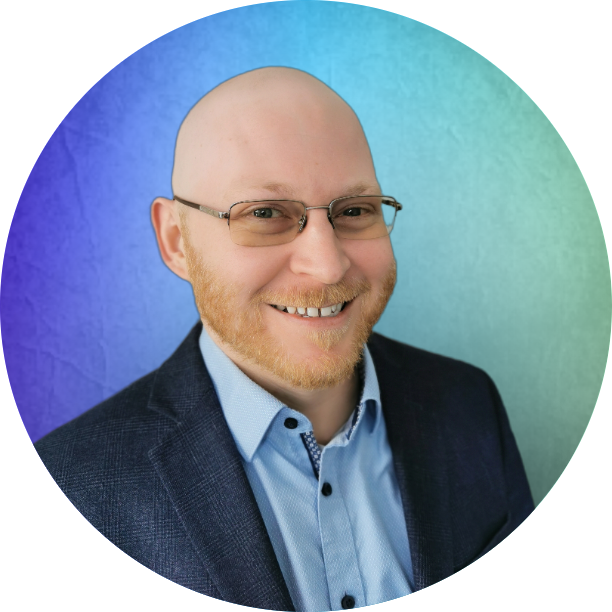
Brandon McLean
I am Brandon McLean, the Corporate Admissions Manager here at the Portobello Institute and I can be contacted on 01 892 0035.
Education is a journey and the destination is a career that you love. I support the department that helps you to plan your journey so you can find the path that’s right for you. I have been with Portobello since 2018 and I love the elation that you can see on the face and hear in the voice of a student who talks through a complicated goal, who we can provide with a simple solution. When the conversation has finished and they can clearly see the path forward, I am thrilled. Education is a milestone in determining your future, and I cannot think of a better milestone to have a hand in.
How do I apply?
Entry to this course is by direct application to the college.
With a Leaving Certificate
Leaving Certificate requirements – Minimum of grade C or O6 in ordinary level Biology* or Physical Education, English and Maths with a pass in 3 other subjects.
*Applicants who do not hold LC Biology or Physical Education, are required to undertake the Portobello Institute Anatomy & Physiology programme and use this award in place of LC Biology. This course is available through Portobello Institute, further information is available here.
Sitting the Leaving Certificate in 2024
Students may apply and be granted a “Conditional Offer” prior to completing the Leaving Certificate.
Step 1 – Submit your application
Step 2 – Review of application and confirmation of eligibility criteria and entry requirements
Step 3 – Conditional Offer issued based on successful achievement of minimum requirements
Step 4 – Confirm acceptance of a place and pay deposit as detailed
Places cannot be held open for applicants awaiting leaving certificate results, however, should a student accept a place and then choose not to progress with this course having received a CAO offer, a refund of 75% of fees paid will be made. Refunds must be requested in writing within 48 hours after the first-round offers have been made. This will only be accepted by emailing [email protected]. Evidence of CAO offer acceptance must be provided along in order to apply for a refund.
Applicants who have previously completed the Leaving Certificate;
Minimum of grade C or O6 in ordinary level Biology* or Physical Education, English and Maths with a pass in 3 other subjects.
*Applicants who do not hold LC Biology or Physical Education, are required to undertake a course in Anatomy & Physiology and use this award in place of LC Biology. This course is available through Portobello Institute, further information is available here.
Without a Leaving Certificate
Students are accepted onto this programme without a leaving certificate however applicants must meet one of the following criteria;
- QQI level 5 major award containing a biology* subject
- ITEC level 2 award containing anatomy & physiology
- An undergraduate degree in another subject
- Anatomy & Physiology – available through Portobello Institute
- Mature entry at 21 years. Mature students are reviewed on a case-by-case basis and entry is via interview. Those without a grounding in science and a previous academic qualification in science or biology may complete an Anatomy & Physiology course such as this one available through Portobello Institute, further information is available here.
- Equivalent qualifications with biology/anatomy & physiology module
*Applicants who do not hold LC Biology or Physical Education, are required to undertake the Portobello Institute Anatomy & Physiology programme and use this award in place of LC Biology. This course is available through Portobello Institute, further information is available here.
Application Process
Step 1
Complete the online application form.
Step 2
Applicant’s application will be reviewed by the Portobello enrolment team
Step 3
Applicant will be contacted by the Portobello enrolment team to confirm place on the course or for more information.
Applicants who do not meet the criteria, may be required to attend an interview with an offer of a place on the programme issued following assessment of suitability. Applicants confirm acceptance of offer by returning acceptance form.
Please note places on this course are only confirmed once tuition fees have been received.
Students will be registered as an undergraduate degree student with University of Essex
Fees & Payment Options
Fees
Course Price
Year 1 base fee
Exam Body Reg. Fee
Overall Course Price
Total amount due
Easy Payment Plan
Payment Option 1
40% deposit payment (€2,712.00), followed by 6 scheduled payments on the first of each month, commencing the 1st of the month after the start date of the course. Includes one off instalment fee of €295.
- €678.00 due in month 1
- €678.00 due in month 2
- €678.00 due in month 3
- €678.00 due in month 4
- €678.00 due in month 5
- €678.00 due in month 6
Payment Option 2
40% deposit payment (€2,594.00) due on application of your course. Final balance (€3,891.00) due before the course start date.
Year 2 Fees
Course Price – €5,885.00
Exam Body Reg. Fee – €325.00
Similar payment plans to year 1 available
Year 3 Fees
Course Price – €5,885.00
Exam Body Reg. Fee – €325.00
Similar payment plans to year 1 available
Fees
Course Price
Year 1 base fee
Exam Body Reg. Fee
Overall Course Price
Total amount due
Easy Payment Plan
Payment Option 1
33% deposit payment (€2,098.80), followed by 8 scheduled payments on the first of each month, commencing the 1st of the month after the start date of the course. Includes one off instalment fee of €365.
- €532.65 due in month 1
- €532.65 due in month 2
- €532.65 due in month 3
- €532.65 due in month 4
- €532.65 due in month 5
- €532.65 due in month 6
- €532.65 due in month 7
- €532.65 due in month 8
Year 2 Fees
Course Price – €5,395.00
Exam Body Reg. Fee – €335.00
Similar payment plans to year 1 available
Year 3 Fees
Course Price – €5,395.00
Exam Body Reg. Fee – €335.00
Similar payment plans to year 1 available
Available Courses
| Course | Delivery Mode | Start Date | Duration | Fees Per Year | |
|---|---|---|---|---|---|
| BSc (Hons) Sports Therapy |
In-person Weekdays
|
30th September 2024 | 3 years | €6,485.00 | |
| BSc (Hons) Sports Therapy |
Blended Learning
|
5th October 2024 | 3 years | €5,995.00 |
Apply
Hooray! One small step for you, one giant leap for your future! Enter your email and you will be redirected to our application platform, where you can complete your application in your own time. Here's what to expect:
- Enter your email, name and mobile phone number
- You'll be redirected to our Application platform
- Start your application
- Choose your preferred payment option
(No payment required at this stage) - Submit your application
- One of our course advisors will review and be in touch
Apply
Hooray! One small step for you, one giant leap for your future! Enter your email and you will be redirected to our application platform, where you can complete your application in your own time. Here's what to expect:
- Enter your email, name and mobile phone number
- You'll be redirected to our Application platform
- Start your application
- Choose your preferred payment option
(No payment required at this stage) - Submit your application
- One of our course advisors will review and be in touch
Apply
Hooray! One small step for you, one giant leap for your future! Enter your email and you will be redirected to our application platform, where you can complete your application in your own time. Here's what to expect:
- Enter your email, name and mobile phone number
- You'll be redirected to our Application platform
- Start your application
- Choose your preferred payment option
(No payment required at this stage) - Submit your application
- One of our course advisors will review and be in touch



